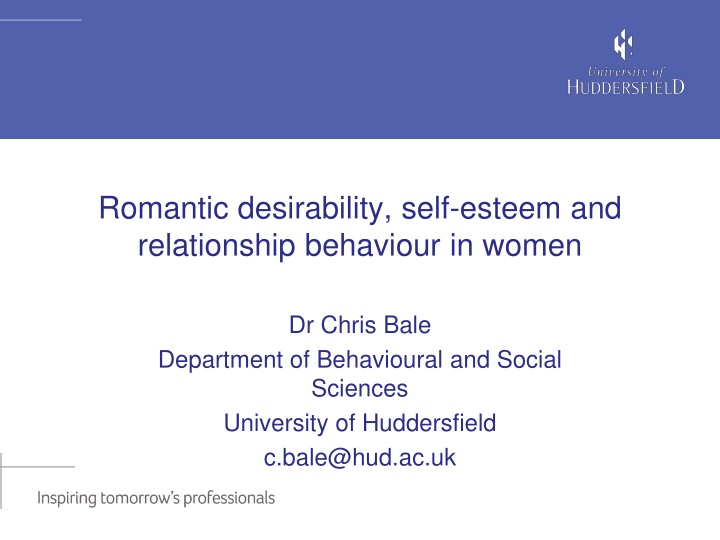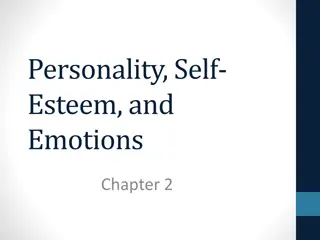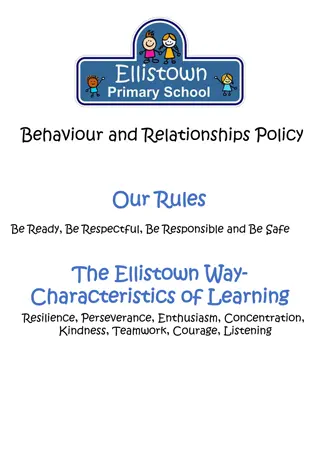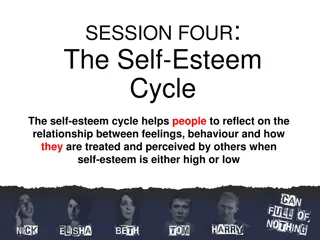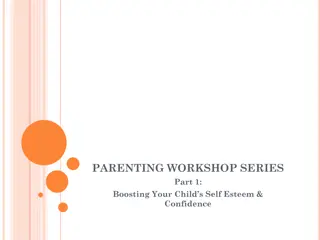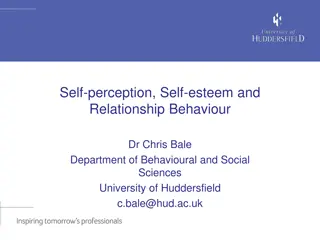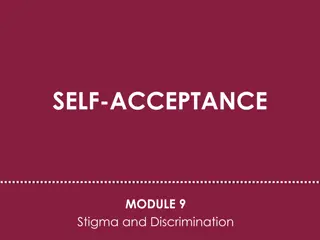Women's Self-Esteem and Relationship Behavior Study: Insights and Implications
This study explores the relationship between women's self-esteem, relational behavior, and perceptions of relational desirability. Findings indicate that self-esteem does not significantly predict relational behavior, with women feeling less desirable than their partners reported investing more in relationships. The results shed light on the complexities of self-esteem in shaping relationship dynamics.
Download Presentation

Please find below an Image/Link to download the presentation.
The content on the website is provided AS IS for your information and personal use only. It may not be sold, licensed, or shared on other websites without obtaining consent from the author.If you encounter any issues during the download, it is possible that the publisher has removed the file from their server.
You are allowed to download the files provided on this website for personal or commercial use, subject to the condition that they are used lawfully. All files are the property of their respective owners.
The content on the website is provided AS IS for your information and personal use only. It may not be sold, licensed, or shared on other websites without obtaining consent from the author.
E N D
Presentation Transcript
Romantic desirability, self-esteem and relationship behaviour in women Dr Chris Bale Department of Behavioural and Social Sciences University of Huddersfield c.bale@hud.ac.uk
Sociometer Theory Leary & Baumeister (2000). Functional, evolutionary explanation of self- esteem. Self-esteem functions as an interpersonal monitor of: the quality and quantity of existing relationships, perceived eligibility for relationships, and motivates individuals to act accordingly.
Self-esteem and relational behaviour Limited and inconsistent evidence on the relationship between self-esteem and relational behaviour (Baumeister et al, 2003). Self report studies. Experimental studies (e.g. Heatherton & Vohs, 2000). Dependency Regulation perspective (Murray et al, 2006) Individuals with low self-esteem are especially sensitive to rejection. They often react to this by denigrating and emotionally distancing themselves from their partners. How do individuals behave in the absence of relational threats?
Aims and predictions The current study examined relationships between women s: Self-esteem. Self-reported relational behaviour. Perceptions of their own and their partners relational desirability. Sociometer theory suggests low SE should predict more positive relational behaviour. Equity Theory (Thibaut & Kelly, 1959) suggests lower relative desirability should predict more positive behaviour.
Method 192 women aged 18-60 (mean = 27.2) engaged in long term relationships (> 3 months, mean = 5 years) completed online measures of: Self-esteem: SES (Rosenberg, 1965) & PEI (Shrauger & Schohn, 1995). Relational desirability: MVI (Kirsner et al, 2003) Self & Partner. Relational behaviour: MRI (Buss, 1988) & PSII (Ellis, 1998).
Results After controlling for age and length of relationship: Self esteem (SES) did not significantly predict relational behaviour. Scores on the PEI weakly negatively predicted scores on the MRI (r2= .05, p<.05). Relative desirability significantly negatively predicted partner investment behaviour (r2 = .27, p<.05).
Discussion Self-esteem does not predict relational behaviour. No evidence for either the Sociometer or Dependency Regulation perspectives. Women who feel less desirable than their partners report investing more in them. Correlational results suggest this is largely driven by perceptions of their partners. Limitations of self-report. Previous studies show self reports of relational behaviour correlate with partner reports.
Future directions Use implicit measures of desirability and self-esteem to address limitations of self-report. Conduct diary and experimental studies to examine causal effects. Do perceived desirability and self-esteem predict relational behaviour in men? Implications for intimate partner violence and abuse. How effective are different behaviours in maintaining long term relationships?
Thanks for your attention Thanks for your attention. Chris Bale c.bale@hud.ac.uk
